Fenugreek Seeds For Hair: Benefits, How To Use, & Side Effects
Take advantage of this popular condiment to enhance your hair growth naturally.
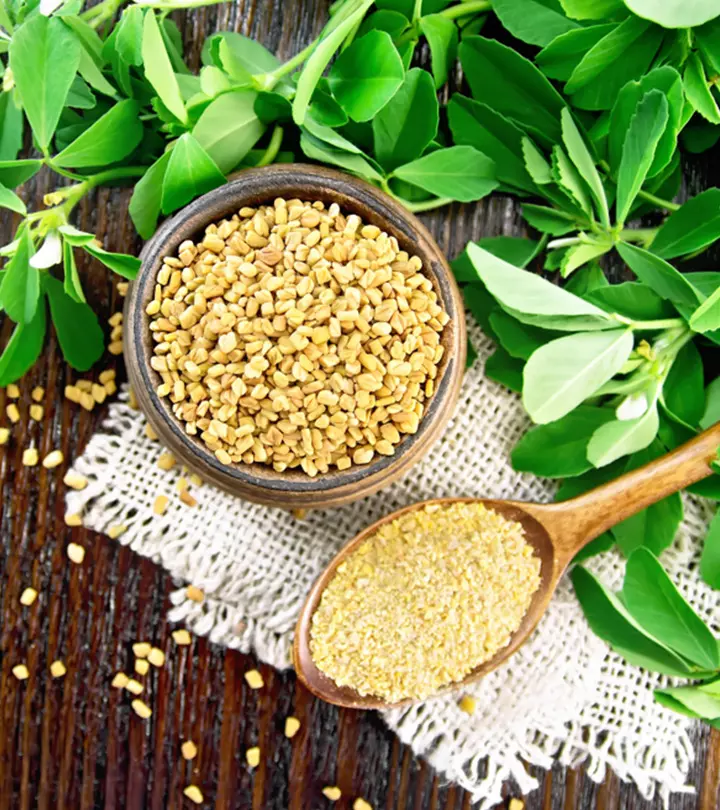
Image: Shutterstock
Using fenugreek seeds for hair issues is a classic home remedy. Many believe it to be an effective treatment for thinning hair and dandruff. However, do these traditional uses have any scientific merit? What is the best way to improve hair health using fenugreek? Fenugreek seeds can benefit your hair in various ways, and we are going to explore them in detail here. Check it out.
 Know Your Ingredient: Fenugreek Seeds
Know Your Ingredient: Fenugreek SeedsWhat Is It?
Oval-shaped, yellowish-brown seed with a deep furrow on one side that has many medicinal uses.
What Are Its Benefits?
It promotes hair growth and maintains scalp health.
Who Can Use It?
While it is safe to be used on all hair types, those with excessive hair fall, damaged hair, and scalp might find it especially helpful.
How Often?
You can apply fenugreek to your hair and scalp twice or thrice a week.
Caution
Avoid using fenugreek if you are allergic to chickpeas and peanuts.
In This Article
What Is Fenugreek?
Fenugreek
is a green herb found in southern parts of Asia and the Mediterranean. It is popular for its unique aroma and bitter flavor. Both its leaves and seeds are used for culinary and medical purposes.
Fenugreek seeds have been used for a long time and have various health benefits. They help improve digestion, soothe skin irritation, and even induce labor (1). They also could regulate cholesterol and blood sugar levels and even fight inflammation (2).
These seeds are rich in vitamins, phosphates, flavonoidsi A diverse group of phytonutrients (plant chemicals) with antioxidant properties found in many fruits and vegetables. , iron, and saponinsi A class of bioorganic compounds from legume plants that possess antimicrobial properties. . But how can they be beneficial for your hair?
Key Takeaways
- Fenugreek seeds are rich in iron and protein that are essential for hair growth.
- While direct research on the relation between fenugreek seeds and hair growth is limited, some studies state the seeds may positively impact hair growth.
- You can use fenugreek seeds for topical application in the form of masks or as dietary supplements.
How Are Fenugreek Seeds Good For Your Hair?
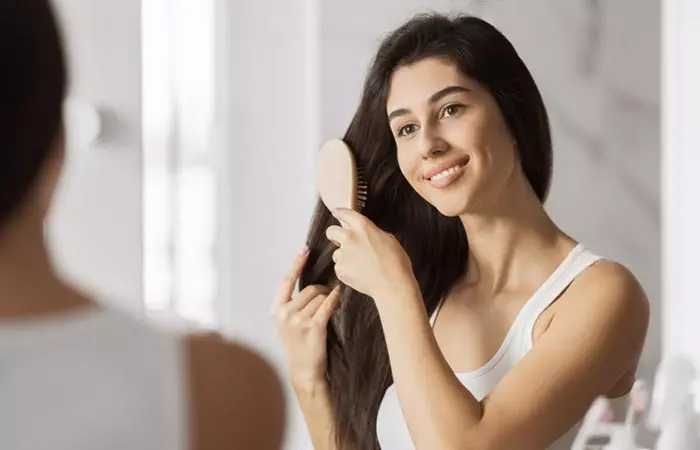
Fenugreek Seeds For Hair Growth
Fenugreek seeds are rich in iron and protein, which are essential for hair growth.
They also contain flavonoids and saponins that possess anti-inflammatory and anti-fungal properties (3).
Direct research on the relation between fenugreek seeds and hair growth is limited. But some studies state the seeds may have a positive effect on hair growth.
In one study, 53 participants were given a daily oral dose of 300 mg of fenugreek seed extract for 6 months. Eighty percent of the participants observed an improvement in their hair growth (4).
In another animal study, the topical application of a herbal treatment made with an oil mixture containing fenugreek seed extract helped increase hair growth. The study stated that the extract could be an alternative to minoxidil, a popular hair growth medication (5).
Sean, a blogger posting about ayurvedic herbs for hair and skin care, discussed the benefits of fenugreek in a post, referring to it as the “bitter torture of our Indian childhoods,” and highlighting its use in promoting hair growth and soothing the scalp. Humorously, she writes, “Fenugreek helps ease itchy scalp and is one of the rare herbs that wake up dormant hair follicles to start growing hair again. If you’re struggling with shedding, hair loss or thinning hair this is the herb you need to try for a natural solution. Plus you get a snack out of it- what more do you need (i)?”
Although these studies show a positive effect of fenugreek seed on hair growth, more research is warranted in this regard.
Fenugreek Seeds For Scalp Health
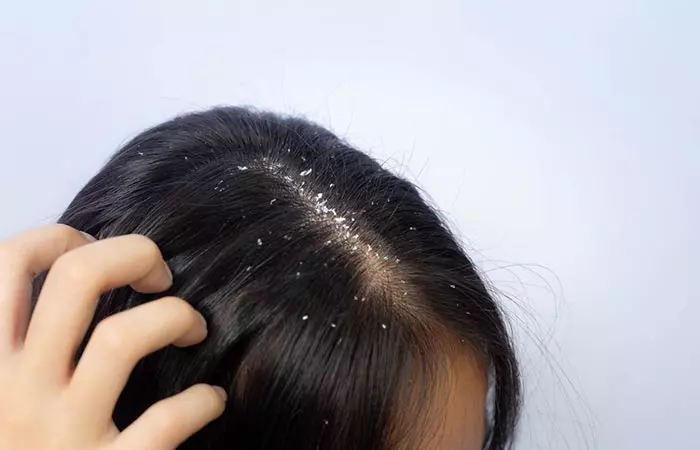
Fenugreek is popular in treating conditions associated with dry or irritated skin. It can be helpful in treating dandruff that is caused by itchy, flaking scalp. An itchy scalp, in some cases, may lead to temporary hair loss as well. You may further read about Fenugreek seeds for dandruff to know what benefits it can bring to eradicate your dandruff issue.
Dandruff can also be caused due to excess oil production, fungal growth, and inflammation (6).
It is unclear if fenugreek seeds can treat all causes of dandruff. But some studies have found that these seeds possess anti-inflammatory, moisturizing, skin-soothing, and wound-healing properties (7), (3).
In a study done on 11 people over 6 weeks, a cream with fenugreek extract was found to reduce skin irritation and enhance skin moisture (8).
Some anecdotal evidence suggests that using extracts of fenugreek benefits the hair by boosting scalp health. However, more research in this area is warranted.
You can use fenugreek seeds for hair growth in a couple of major ways. We have highlighted them below.
How To Use Fenugreek Seeds For Your Hair
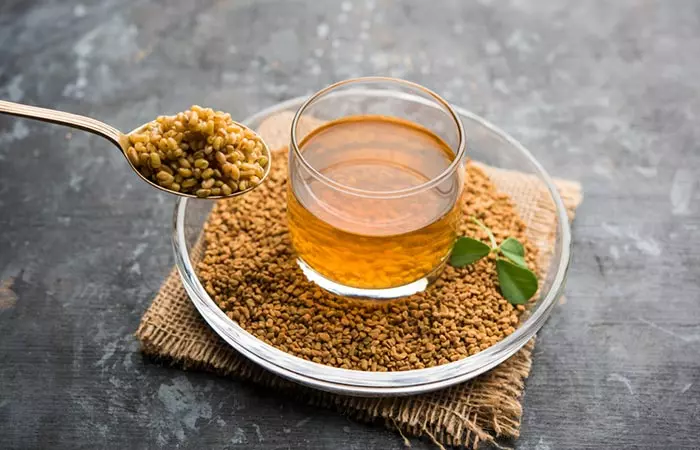
- Supplements
Fenugreek seeds as a supplement are readily available as a powder or a concentrated liquid extract. There is no concrete recommended oral dose established yet. Some believe 1200 mg of fenugreek seed powder or 300 mg of extract per day could be ideal. Consult with your doctor regarding the same.
Note: Consult your doctor if you plan to use a fenugreek supplement and are unsure about it.
 Quick Tip
Quick Tip- Topical Application
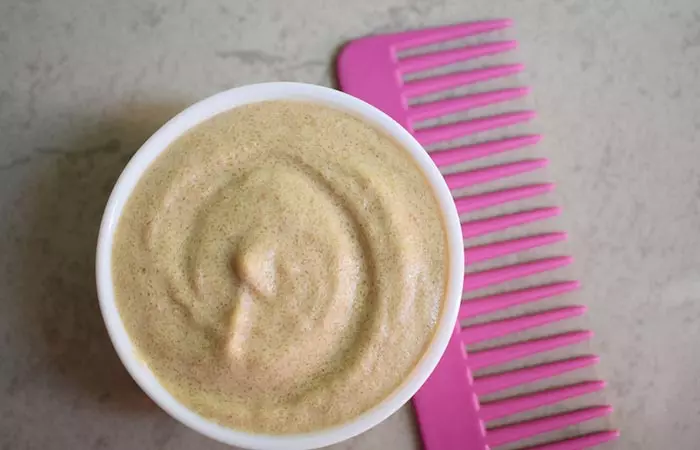
Topical use of fenugreek seeds can also help promote healthy hair growth. You may use a fenugreek seed mask for this purpose.
- Soak a few tablespoons of fenugreek seeds in water.
- Make a paste of the seeds and apply the paste to the scalp. Additionally, you can also mix coconut oil, yogurt, or honey with the paste.
- Leave the mask on for over 10 mins and rinse with warm water. Clean your hair with a gentle shampoo. To see noticeable results, apply the mask once or twice a week consistently. Also, make sure to do a patch test beforehand to ensure no skin irritation.
- Fenugreek Water
When you think of a fenugreek water rinse, the first question that must pop into your mind is surely – “can I use fenugreek water for hair daily?” The answer is, yes you can use fenugreek water daily on your hair. This water is generally safe, as long as it doesn’t cause any irritation or adverse reactions. However, some people may find that using it a few times a week is sufficient to achieve the desired benefits without overdoing it.
To make this rinse, soak 1-2 tablespoons of fenugreek seeds in some water overnight. Blend or strain out the seeds. You should be left with a slightly thick liquid. You can dilute this solution with water, if needed. After shampooing, spray this solution on your scalp and hair. Let it sit for about 5-10 minutes, then rinse it off with cold water.
 Quick Tip
Quick TipThere are many Fenugreek benefits, especially its seeds. However, Fenugreek seeds may cause certain side effects, so it is important to be aware of them before you start using them.
Side Effects Of Fenugreek Seeds

- Fenugreek supplements are generally safe for most. However, if you are pregnant, avoid them before 37th week as they may induce premature labor. Avoid fenugreek if you are allergic to peanuts and chickpeas (9).
- Fenugreek seeds are also believed to cause neurodevelopmentali A group of disorders that affects the development of the central nervous system in humans. , neurobehaviorali A group of conditions that are associated with brain impairments in humans, leading to behavioral challenges. , and neuropathologicali Diseases that specifically affect the nervous system (spinal cord, nerve network, and brain) and eyes. side effects. More research is needed in this area.
- Fenugreek seeds may also cause chronic asthma in susceptible individuals. Research is limited. Consult your doctor before use.
Tired of dandruff and hair fall? Watch this video for tips on using fenugreek seeds to triple your hair growth and alleviate dandruff and hair fall issues.
Fenugreek seeds have been used as a natural remedy for ages. It helps treat several hair-related issues. Using fenugreek seeds for hair loss is considered one of the most effective ways to combat the issue. Fenugreek seeds’ antifungal and anti-inflammatory properties help manage dandruff issues, improve scalp health, promote hair growth, enhance nourishment, and treat dry skin conditions. You may incorporate fenugreek seeds or hair masks into your hair care routine or take supplements. Though fenugreek seeds are considered safe, consult your doctor if you experience any side effects.
Frequently Asked Questions
Can I use fenugreek on my hair every day?
Using fenugreek on your hair twice or thrice a week is sufficient. Excessive or over-frequent use of fenugreek may result in adverse effects.
Does fenugreek cause grey hair?
Fenugreek is used to promote hair health and growth and there is no evidence to suggest that fenugreek causes grey hair.
Can we apply fenugreek paste on oiled hair?
Yes, you can apply fenugreek paste on oiled hair to improve its efficacy and to prevent over-dryness of the scalp if you have dry hair.
Illustration: Fenugreek Seeds For Hair: Benefits How To Use & Side Effects
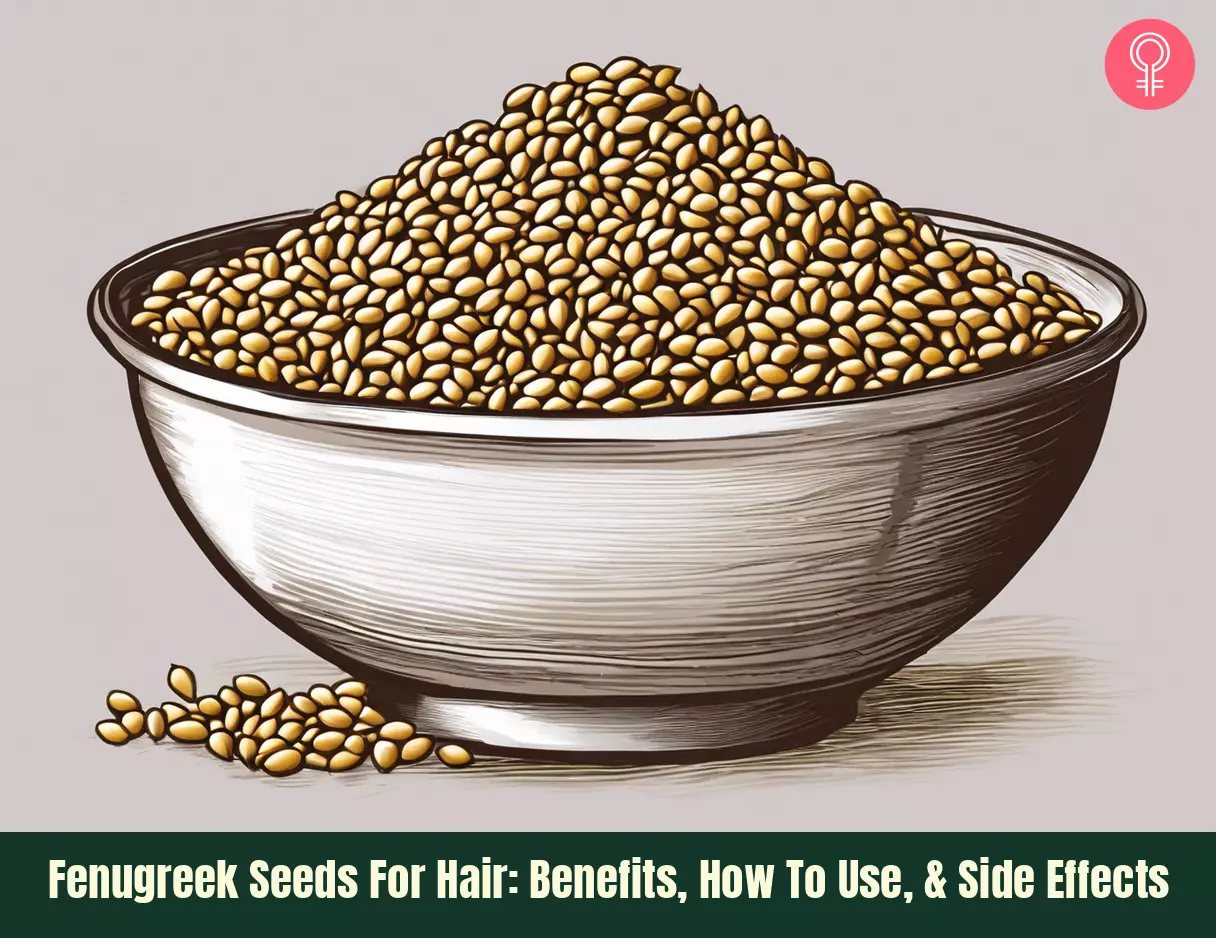
Image: Stable Diffusion/StyleCraze Design Team
Personal Experience: Source
StyleCraze's articles are interwoven with authentic personal narratives that provide depth and resonance to our content. Below are the sources of the personal accounts referenced in this article.
i. Get To Know Fenugreek!
https://seangoesnatural.wordpress.com/2020/11/12/get-to-know-fenugreek/
References
Articles on StyleCraze are backed by verified information from peer-reviewed and academic research papers, reputed organizations, research institutions, and medical associations to ensure accuracy and relevance. Read our editorial policy to learn more.
- Therapeutic applications of fenugreek
https://pubmed.ncbi.nlm.nih.gov/12611558/ - The potential of fenugreek (Trigonellafoenum-graecum) as a functional food and nutraceutical and its effects on glycemia and lipidemia
https://pubmed.ncbi.nlm.nih.gov/21861724/ - A small plant with big benefits: Fenugreek (Trigonellafoenum-graecum Linn.) for disease prevention and health promotion
https://pubmed.ncbi.nlm.nih.gov/28266134/ - Fenugreek+micronutrients: Efficacy of a food supplement against hair loss
https://www.researchgate.net/publication/251923543_Fenugreekmicronutrients_Efficacy_of_a_food_supplement_against_hair_loss - Development and Evaluation of Herbal Formulations for Hair Growth
https://www.hindawi.com/journals/jchem/2008/674598/ - Seborrheic Dermatitis and Dandruff: A Comprehensive Review
https://pubmed.ncbi.nlm.nih.gov/27148560/ - Antioxidant and hemolytic activities, and effects in rat cutaneous wound healing of a novel polysaccharide from fenugreek (Trigonellafoenum-graecum) seeds
https://pubmed.ncbi.nlm.nih.gov/27914964/ - Formulation and characterization of a cream containing extract of fenugreek seeds
https://pubmed.ncbi.nlm.nih.gov/20369794/ - Toxicological properties of fenugreek (Trigonellafoenumgraecum)
https://pubmed.ncbi.nlm.nih.gov/27498339/
Read full bio of Dr. Shruti Chavan
Read full bio of Anjali Sayee
Read full bio of Eshna Das
Read full bio of Krati Darak






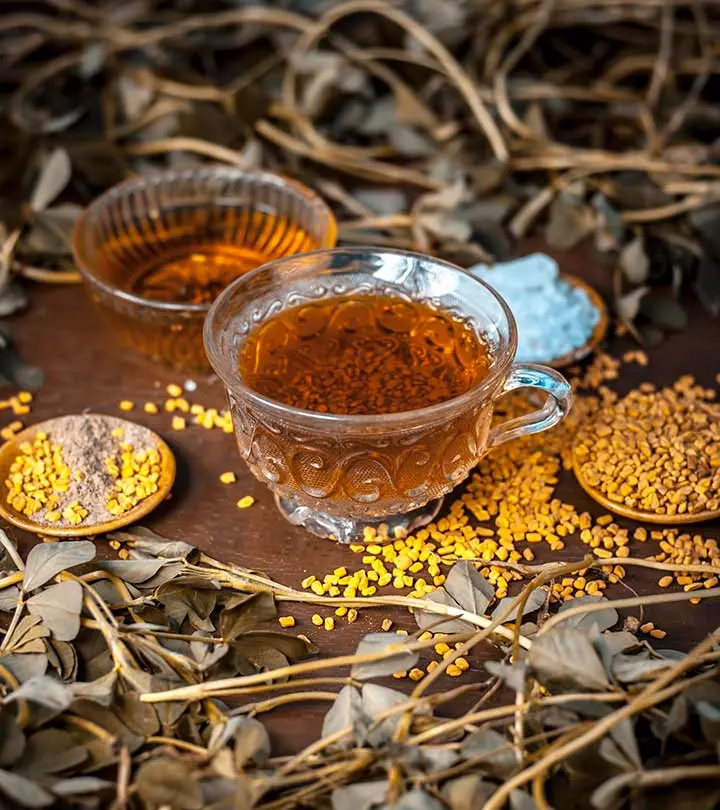
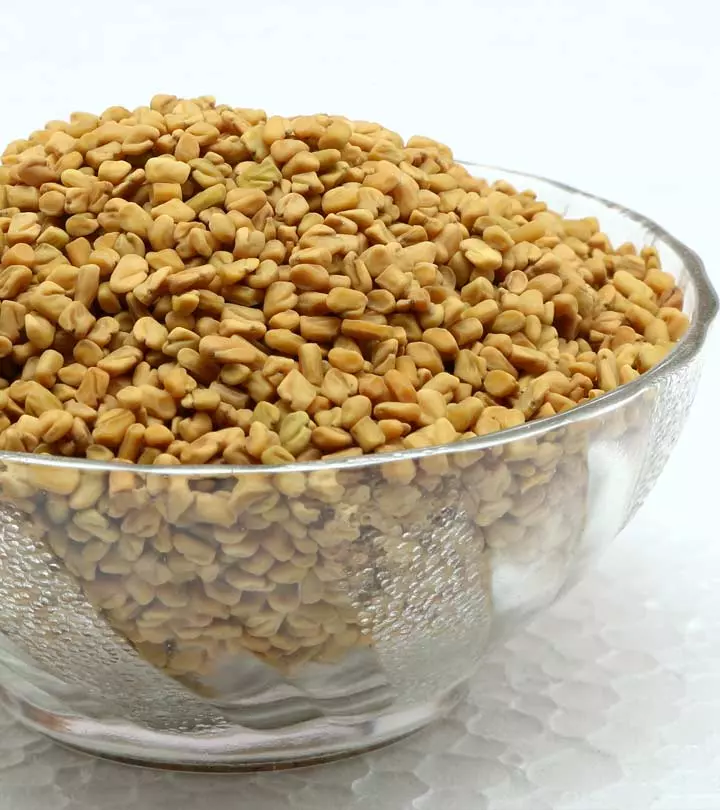
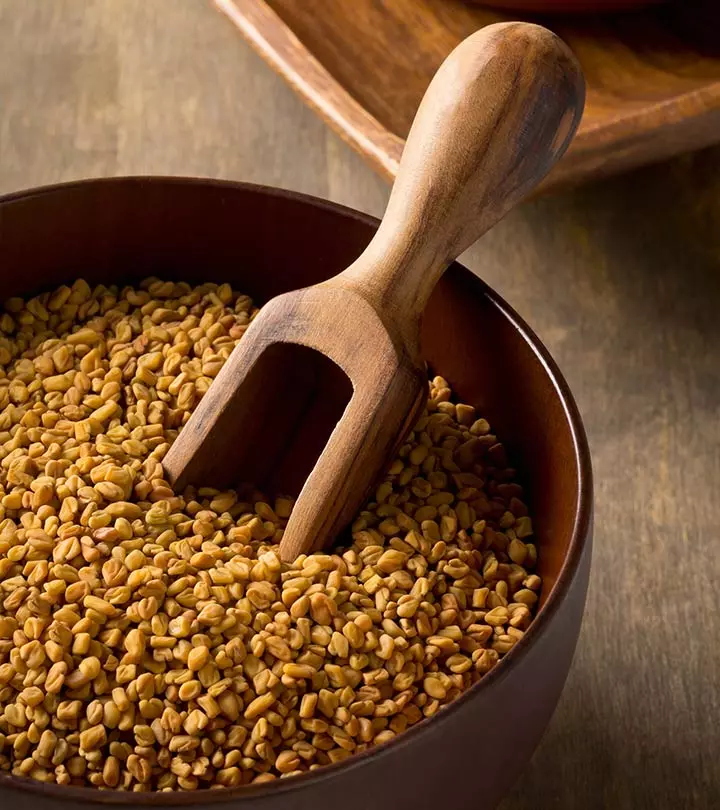
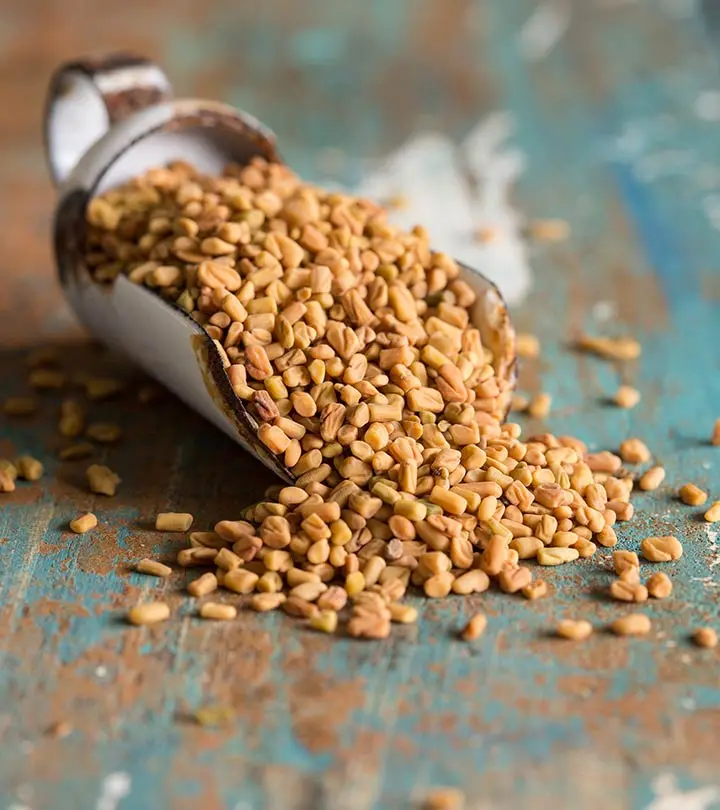
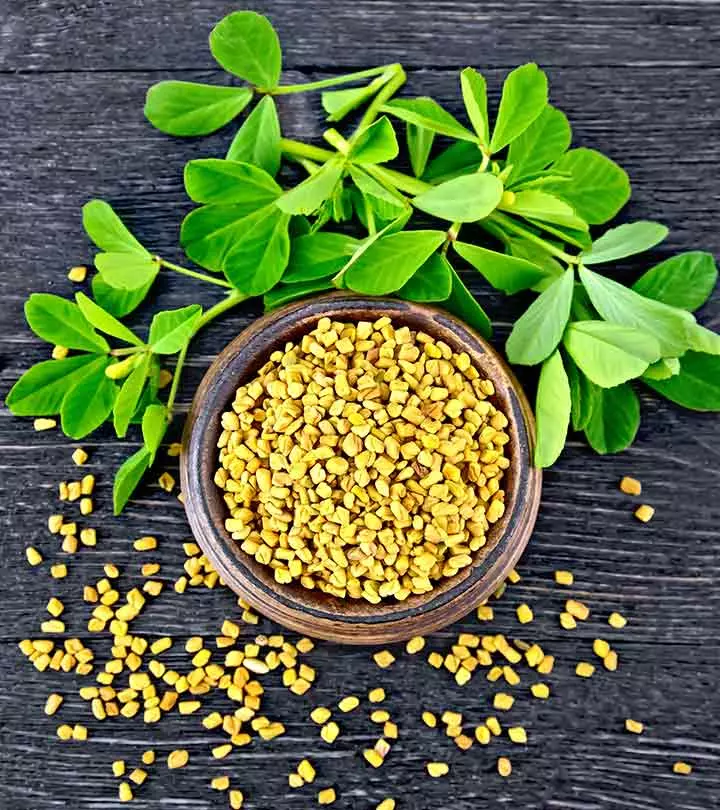
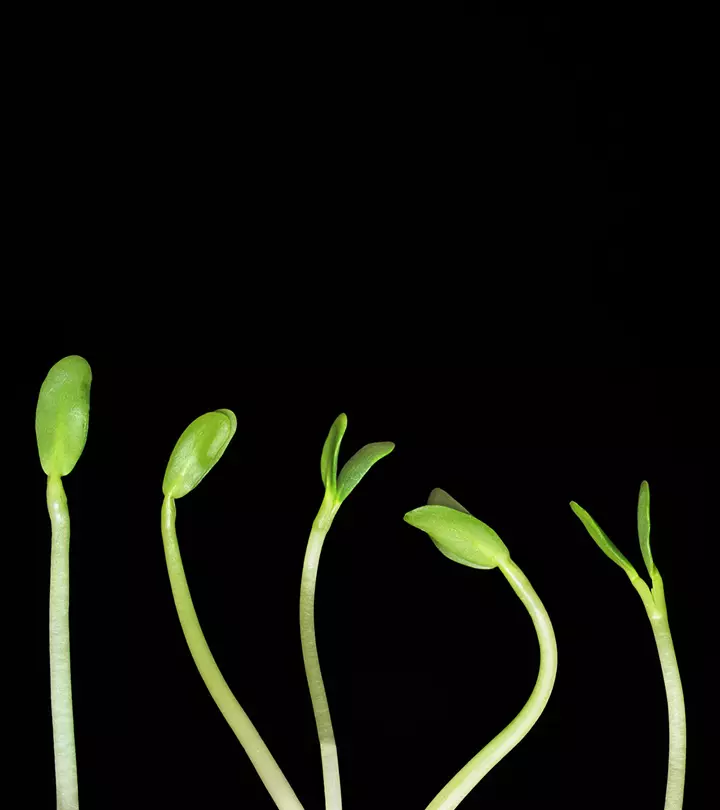
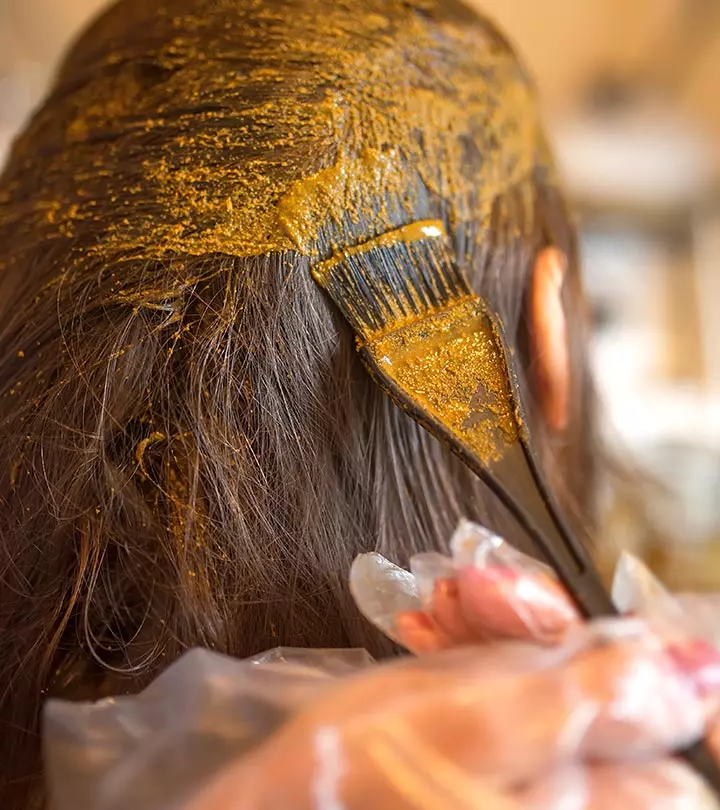
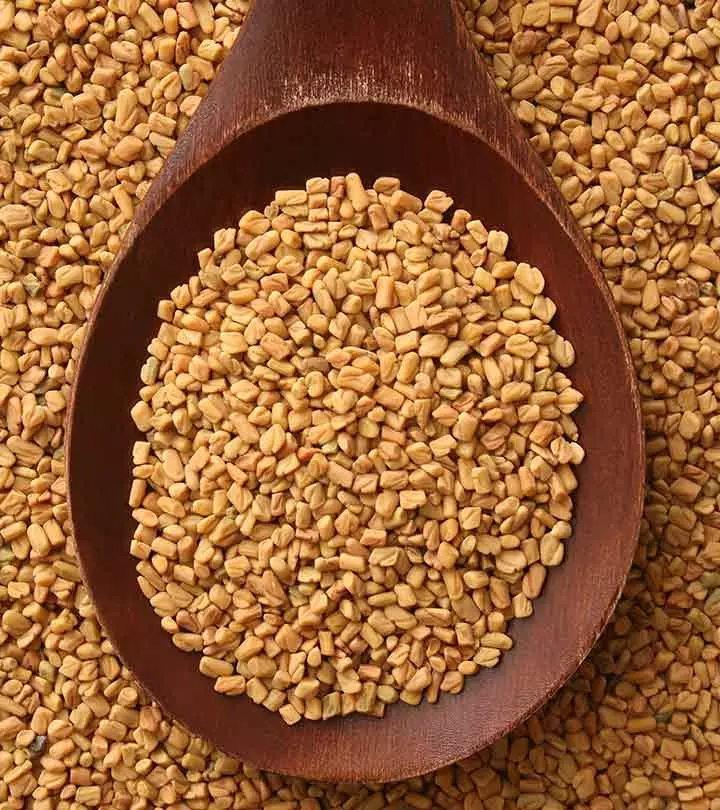
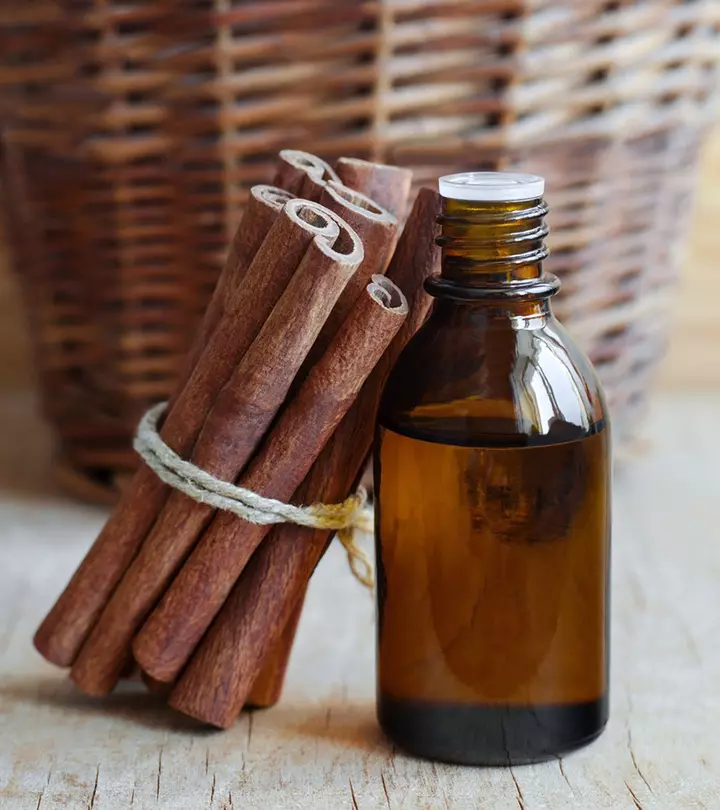

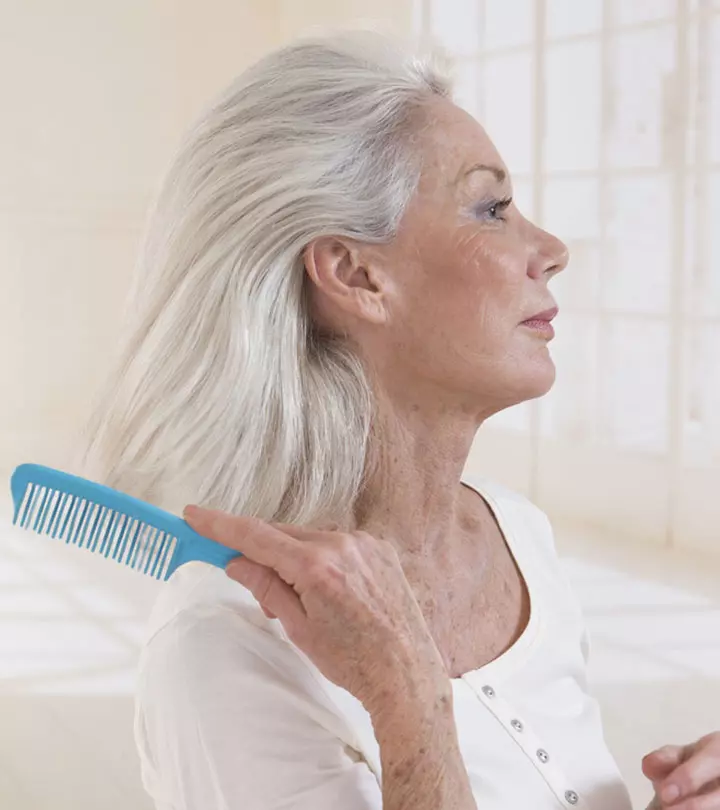
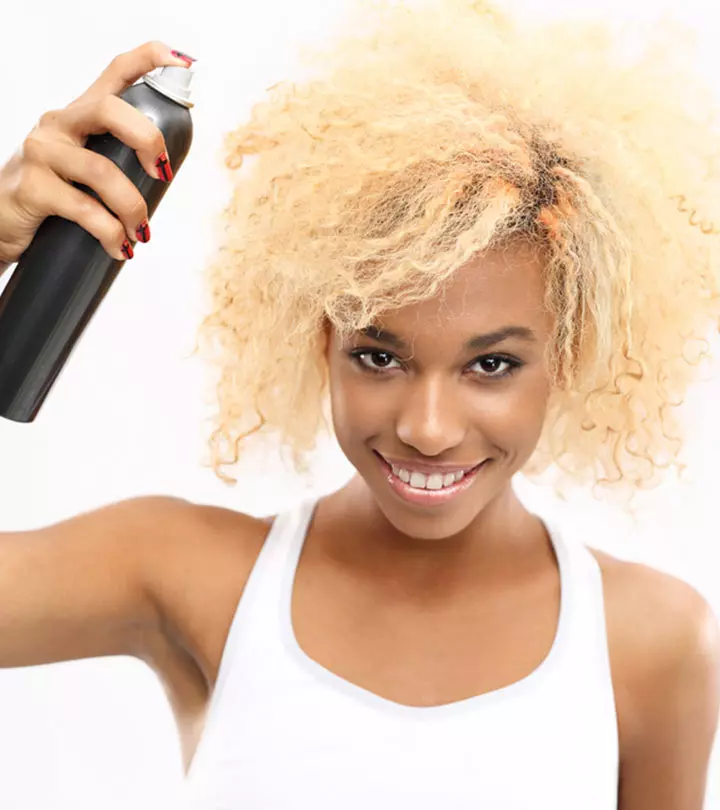
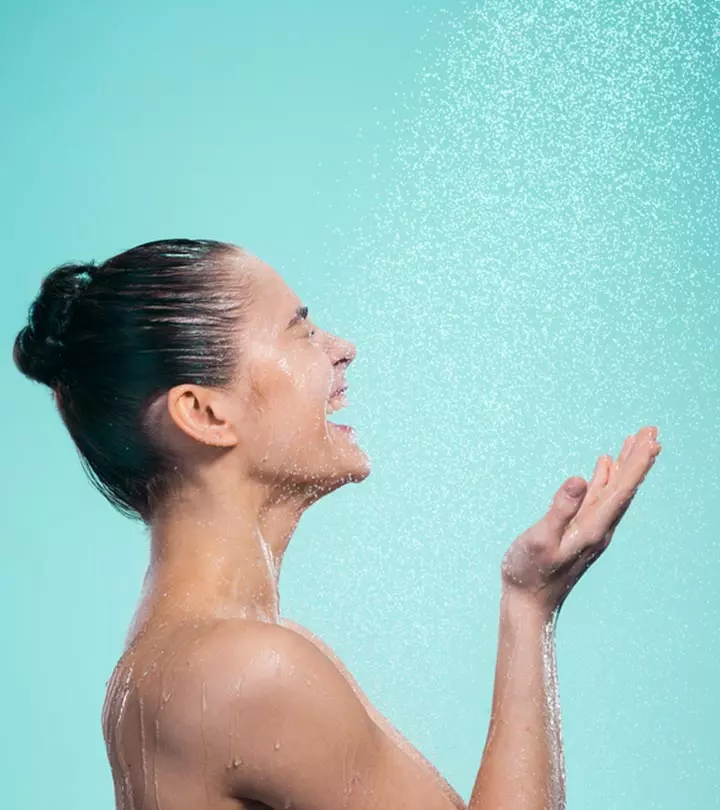
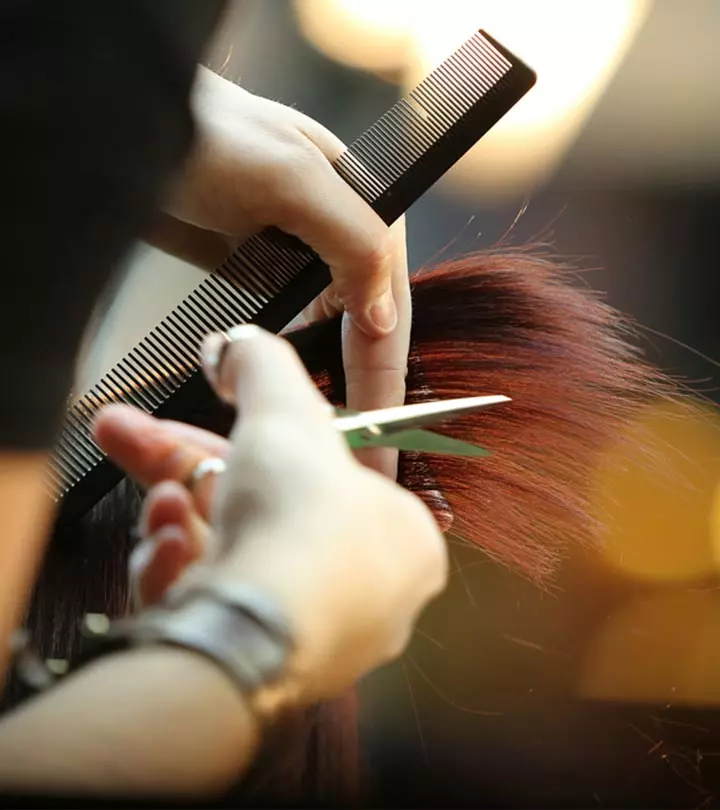
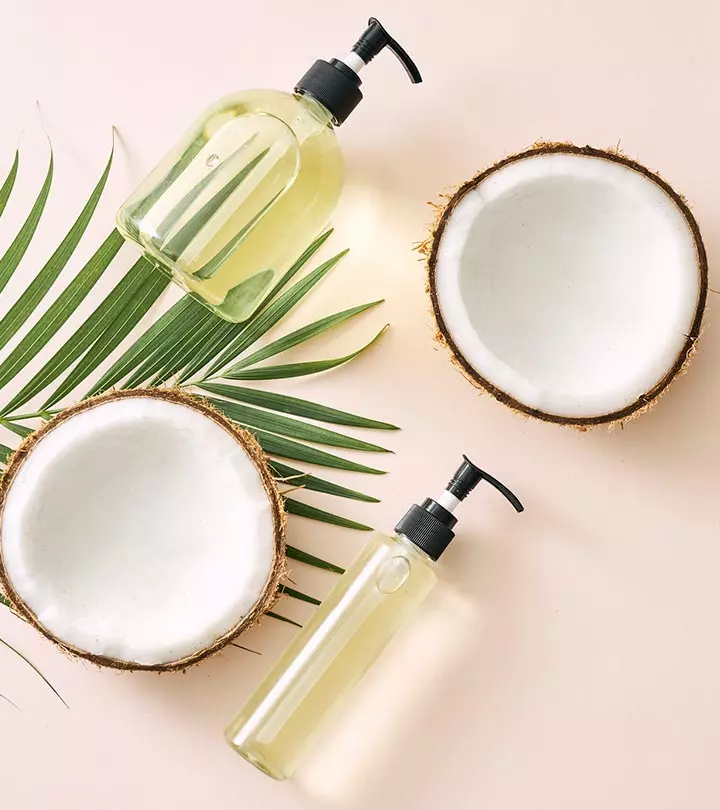

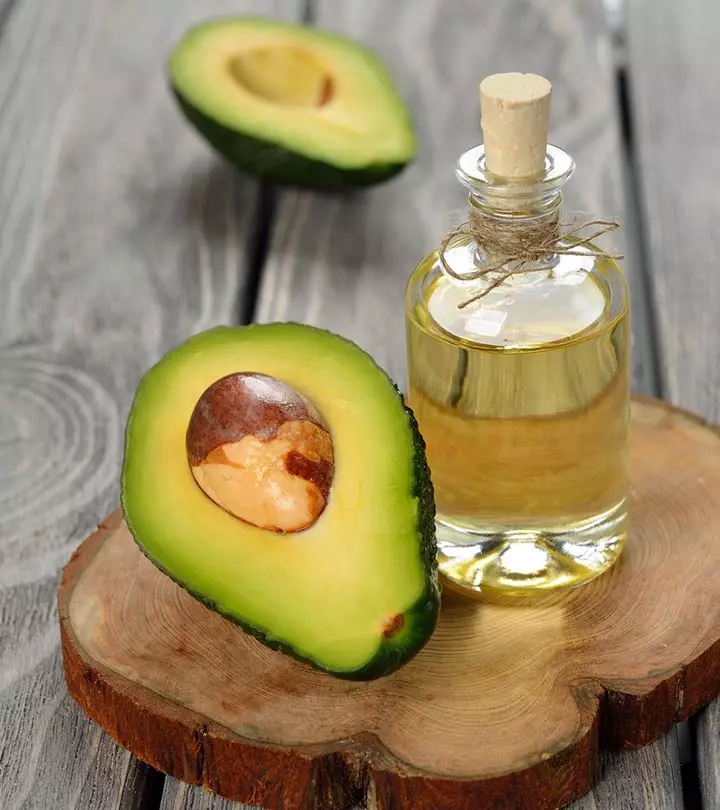
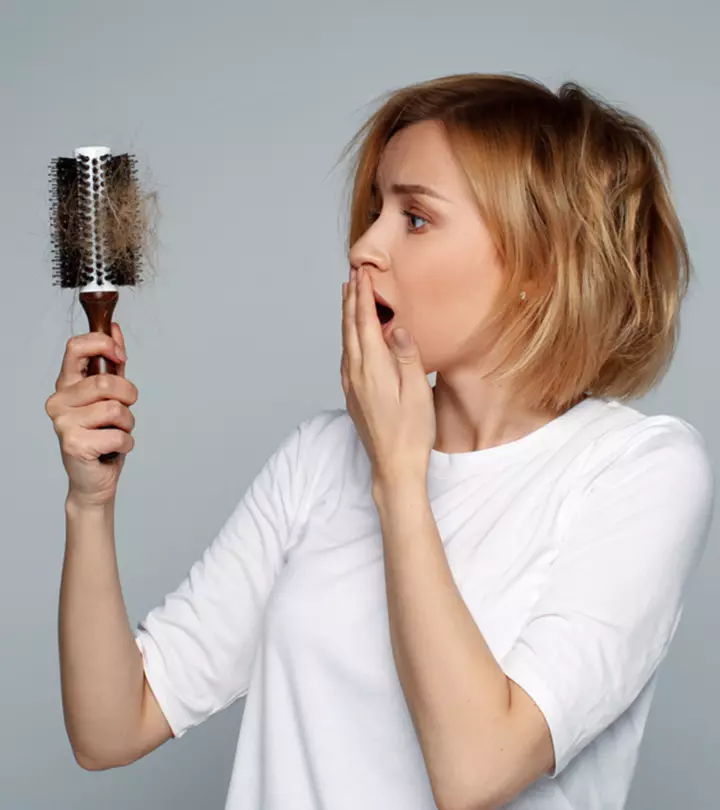
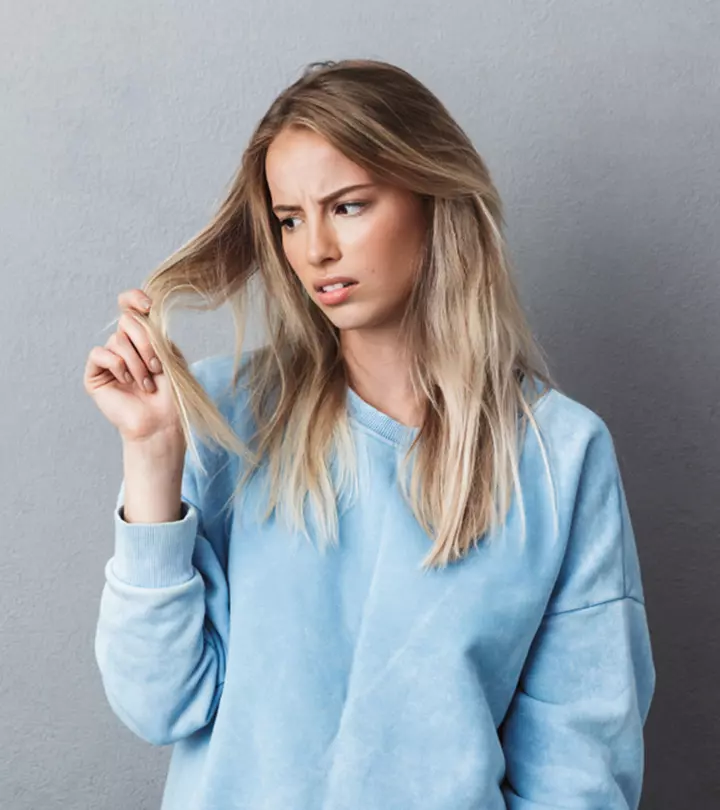
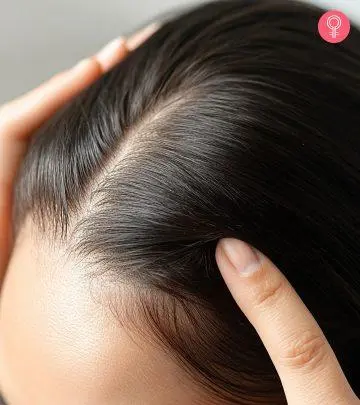
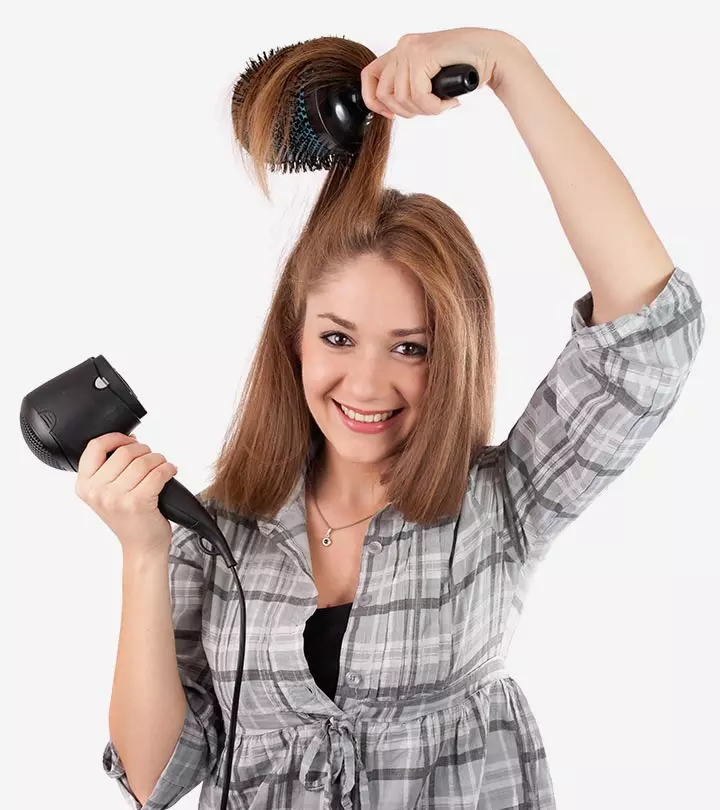
Community Experiences
Join the conversation and become a part of our empowering community! Share your stories, experiences, and insights to connect with other beauty, lifestyle, and health enthusiasts.